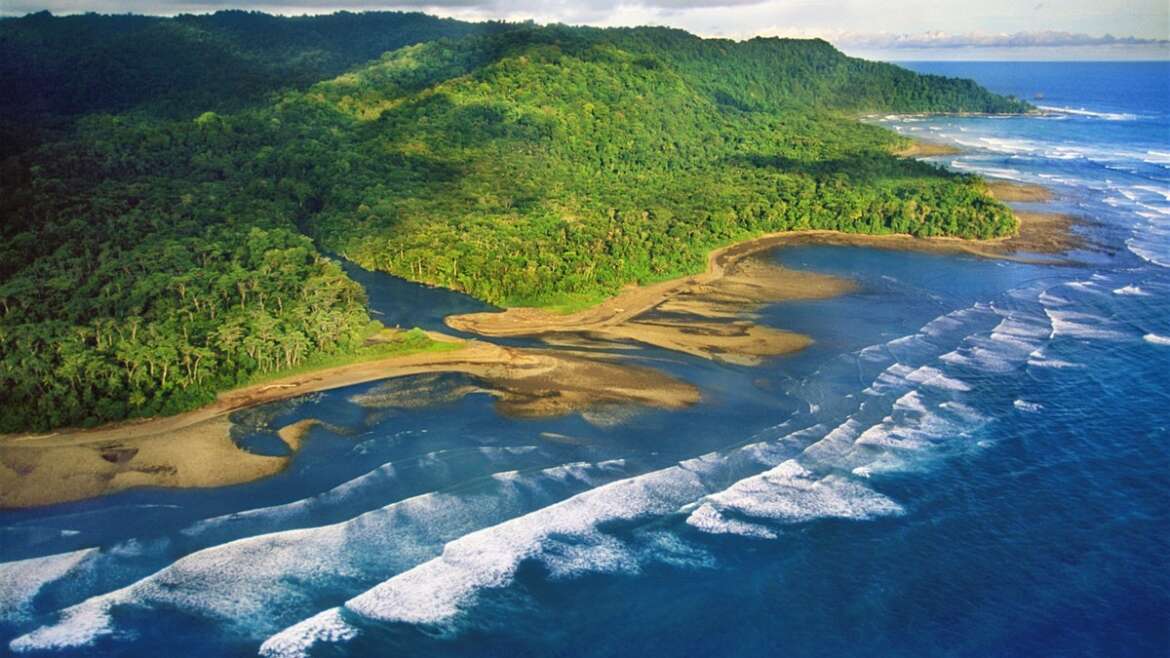Corcovado National Park, located on the Osa Peninsula in Costa Rica, is considered one of the most biodiverse places on the planet. Established in 1975, it covers over 41,000 hectares of tropical rainforest, mountains, rivers, and pristine beaches, creating a rich and varied ecosystem.
One of the park’s most notable features is its biological diversity. Corcovado is home to about 2.5% of the world’s biodiversity, including endangered species such as jaguars, tapirs, and quetzals. Its dense tropical rainforest shelters countless plants, birds, mammals, reptiles, and insects, making it a paradise for naturalists and wildlife enthusiasts.
Corcovado also boasts a series of unique ecosystems, ranging from mangroves and wetlands to white sandy beaches and mist-covered mountains. The trails that traverse the park provide opportunities to explore this stunning environment, leading visitors to hidden waterfalls, spectacular viewpoints, and wildlife observation areas.
Access to the park is limited, which helps preserve its ecosystem and offers a more authentic and tranquil experience. Guided tours are popular, as local guides can share their knowledge about the area’s flora and fauna, as well as the importance of conservation.
In addition to its natural wealth, Corcovado holds significant cultural value. The region has been inhabited by indigenous communities that have coexisted with nature for centuries. Today, the park is also part of conservation and sustainability initiatives aimed at protecting both biodiversity and local traditions.
In summary, Corcovado National Park is a natural treasure that offers a unique experience for those looking to connect with nature in its purest form. Its biological diversity, stunning landscapes, and commitment to conservation make it an essential destination in Costa Rica.

